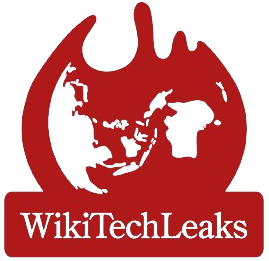In an unprecedented move that could reshape the future landscape of artificial intelligence (AI), the European Union (EU) has set its regulatory sights on the high-profile partnership between tech giant Microsoft-OpenAI. This rigorous examination by EU antitrust regulators seeks to address burgeoning concerns over competition, innovation, and market fairness within the rapidly evolving AI sector.
EU’s Examination Focal Points
The scrutiny from the EU is multifold, focusing primarily on assessing the potential antitrust concerns that may arise from Microsoft’s deal with OpenAI. Key areas under the microscope include:
- Competition Impact: Regulators are evaluating how the union might affect competitive dynamics within the AI industry, particularly in terms of market accessibility for emerging and established AI developers.
- Innovation and Pricing: The investigation aims to determine if this partnership could drive up prices, reduce the pace of innovation, or place smaller AI companies at a disadvantage.
- Compliance with Competition Rules: A critical aspect of the review involves verifying the deal’s alignment with the EU’s stringent competition laws, including considering if remedies or conditions are necessary to foster a fair competitive environment.
Potential Consequences for Microsoft, OpenAI, and the Tech Industry
The implications of the EU’s intense scrutiny are far-reaching:
- Operational Delays: Microsoft and OpenAI might experience holdups in executing their joint initiatives and research endeavors, potentially derailing planned collaborations.
- Reputational Risks: Any findings of anticompetitive practices could tarnish the reputations of both entities, casting shadows over their market conduct.
- A Cautious Tech Industry: The broader technology sector might adopt a more guarded approach towards future mergers and partnerships, anticipating likely regulatory hurdles.
- Regulatory Precedents: On a positive note, this investigation could lay down clearer regulatory frameworks for AI collaborations, ultimately fostering a healthier, more competitive landscape.
Industry Reactions: A Divided Front
The response from the technology industry and wider business communities to this scrutiny is a blend of optimism and concern:
- Supporters’ Viewpoint: Advocates for the deal underscore its potential to catalyze groundbreaking AI advancements, positing that the partnership could democratize access to cutting-edge technologies across sectors.
- Critics’ Perspective: Detractors caution against the monopolistic shadows the deal might cast on the AI landscape, fearing it could marginalize smaller players, diminish market diversity, and elevate costs.
The European Union’s antitrust regulators are closely examining Microsoft’s substantial $13 billion investment in the forefront artificial intelligence research organization, OpenAI. The probe stems from worries that such a significant collaboration might hinder competitive practices within the swiftly advancing AI sector.
Although the primary concern isn’t the investment per se, the future implications of the Microsoft-OpenAI partnership are under a microscope. Regulators are particularly focused on:
- Competition Limitation: The inquiry aims to determine if the alliance might restrict access to essential AI development tools or result in a disproportionate competitive environment within the EU.
- Market Influence: Questions arise whether Microsoft could potentially exploit its market position in tandem with OpenAI’s technological prowess to manipulate the AI market in its favor.
The EU is in the preliminary stages of evidence collection, considering a formal inquiry amidst wider global apprehensions regarding the influence of tech giants on AI’s future, especially through strategic partnerships and mergers.
While Microsoft asserts its non-controlling stake in OpenAI without any direct influence on its governance, the company refrains from commenting on the speculated investigation. The EU Commission is assessing the situation, indicating a thorough antitrust investigation hinges on determining a shift in operational control.












